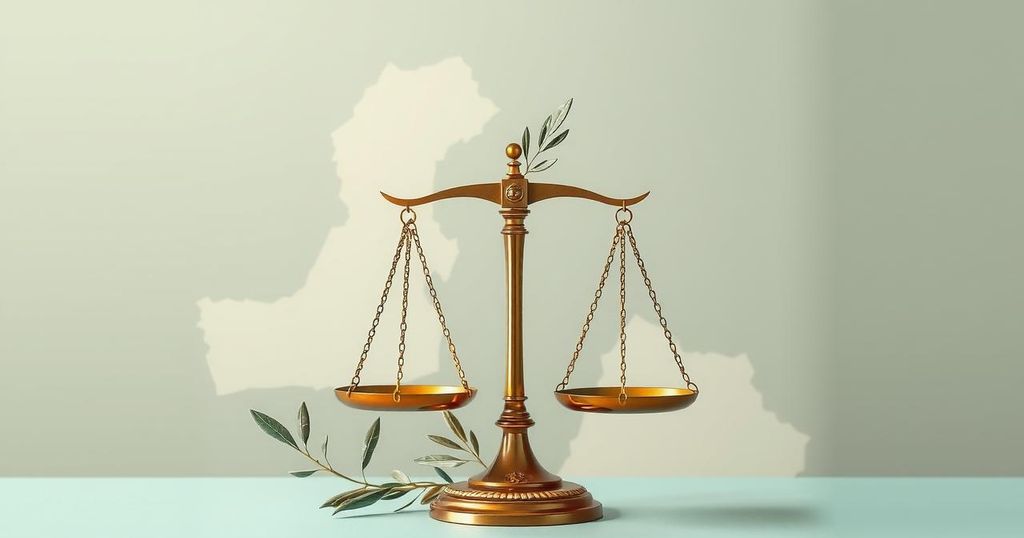- US envoy Tom Barrack warns Lebanon about political stagnation.
- Hezbollah’s future as both a militant group and a political party is under scrutiny.
- Barrack indicates need for Lebanon’s unified governance amidst regional changes.
- Behind-the-scenes negotiations between Lebanon and Israel could be underway.
- Lebanon’s challenges are compounded by dysfunctional institutions and governance.
Tom Barrack Issues Stark Warning About Lebanon’s Future
US Envoy’s Warning to Lebanon About Political Stagnation In a recent statement in New York City, US Special Envoy Tom Barrack voiced his concerns regarding Lebanon’s political landscape. He issued a stark warning: if Lebanon doesn’t “hurry up and get in line,” neighboring countries in the region will be forced to adapt to changes without it. This remark highlights the growing frustration among US officials regarding Lebanon’s ongoing political struggles and the urgent need for a comprehensive realignment in the Middle East.
Disarmament and Hezbollah’s Dual Role in Politics
Hezbollah’s Political Dynamics and Disarmament Process Barrack’s conversation with Arab News touched on Hezbollah’s complex role in Lebanon – torn between its designation as a terrorist organization and its legitimate political representation. The envoy explicitly called for the disarmament of Hezbollah’s military wing, which is viewed by Washington as a significant security threat. He emphasized that any disarmament strategy must originate with the Lebanese government and should involve Hezbollah’s cooperation as a political entity. Barrack’s assertion that discussions must start with the Council of Ministers adds a layer of depth to the intricate Lebanese political fabric, which has been paralyzed for years by factional disputes.
Hezbollah’s Future Amid Regional Realignment
Regional Recalibration Amid Changing Dynamics On the broader regional stage, Barrack sees a shift following President Trump’s policies on Iran, suggesting that countries in the Middle East are reevaluating their positions in light of new geopolitical realities. He expressed optimism about Hezbollah’s potential willingness to cooperate for the greater good of Lebanon, mentioning that various sects – Sunnis, Shias, and Christians – need to unify. Interestingly, he hinted that Israel may need to play a role in this transformation, stating, “Israel has to be a component part of that.” Additionally, Barrack remarked on behind-the-scenes negotiations taking place between Lebanon and Israel, indicating potential progress despite existing legal restrictions against direct contact.
Challenges Facing Lebanon’s Governance and Future
Lebanon’s Governance Challenges and Regional Strategy The envoy also addressed Lebanon’s dismal political performance and the challenges facing institutions, including its central bank, which remains dysfunctional. Despite the grim picture, Barrack exhibited cautious optimism, asserting that the Lebanese government responded effectively to proposals regarding Hezbollah’s disarmament. He noted the capacity for change could originate from Lebanese leaders keen to simplify political maneuvers that have stalled progress for decades. Yet Barrack stressed that the time for procrastination is limited and implied the risks if Lebanon remains unresponsive to these developments.
US Strategy on Syria and Long-term Regional Vision
US Role in the Syrian Context and Broader Strategy On Syria, Barrack discussed the new approach taken by the Trump administration, which includes lifting certain sanctions as a strategic move to encourage rebuilding efforts in the country. His remarks portrayed Syria as entering a new phase, emphasizing that the goal is not nation-building but rather providing an opportunity for self-determination by the Syrian people. He reiterated the US stance against a federal system, asserting instead that a unified Syria with a consolidated government is crucial. This viewpoint aligns with a broader vision where normalization between Syria and Israel could progress, directly linking regional stability to cooperative efforts among neighboring states.
Regional Relations and Future Coexistence Aspirations
Navigating Complex Regional Relations and Future Hopes Barrack reaffirmed the potential for gradual normalization agreements between Syria and Israel, noting key players like Lebanon, Jordan, Iraq, and Turkey would also be necessary for this process to flourish. While asserting there is no alternative plan or fallback option, he reiterated the urgency for regional actors to capitalize on the current moment of opportunity. “There is no Plan B,” he remarked. Thus, he underscored the US commitment to facilitate progress while making it clear that American support cannot serve as a permanent security guarantee. The stage is set for Lebanon and Syria to reflect on their future relationship with the US, Israel, and one another, and the coming months could prove crucial.
In summary, Tom Barrack’s remarks shed light on Lebanon’s political stagnation and the crucial need for a unified approach, particularly involving Hezbollah’s disarmament and its duality as a political entity. Despite significant challenges, there is a sense of cautious optimism about Lebanon’s future, hinging on cooperative regional dynamics and the US’s supportive yet firm role in this transformative period. Moving forward, it appears crucial for Lebanon to embrace transparency and proactive measures in navigating its complex political landscape, as well as in addressing its relationship with Israel and regional stability.






